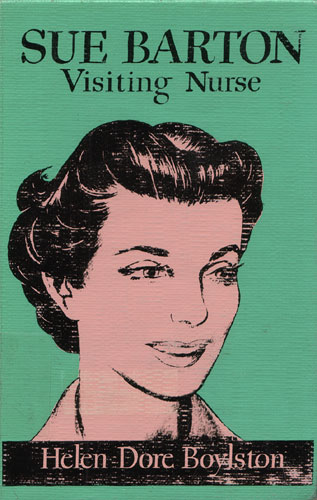
Not many of the houses looked prosperous and most of them were grimy; yet the street had charm, for traces of another era lingered in the crookedness of windows and doors, in the casual little yards, in old-fashioned wooden porches elaborate with scrollwork. New York roared around the street and above it. An icy wind from the harbor swept through it, blowing paper into the faces of pedestrians, and tearing at the “For Rent” sign swinging over the door of the smallest house on the street — a tiny red brick house with green shutters and a white door.
The sign creaked dismally, and the janitor, coming out of the basement of the adjoining house, looked up with an expression of melancholy indifference. Then he glanced along the street and brightened. He could always tell when people were apartment hunting, because they progressed so jerkily, pausing every few steps to appraise house fronts and read signs.
The two girls coming toward him were proceeding after this method, and their faces had the set look of people whose feet are beginning to hurt. They were pretty girls, and smartly dressed, but they were not New Yorkers if the janitor was any judge. New Yorkers always gazed upward, admiring New York, while strangers never did so — for fear of seeming unsophisticated. The Empire State Building was in plain sight, its slender shaft glittering in the sun, yet neither girl gave it a good look, a long, pleased, neck-stretching look, as any New Yorker would have done.